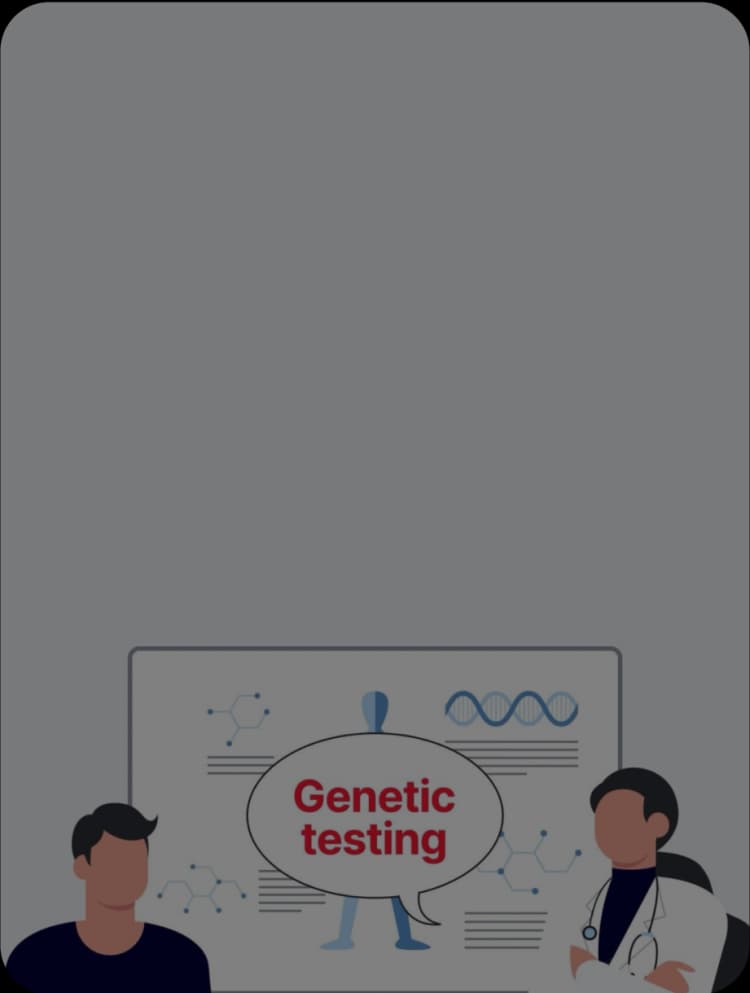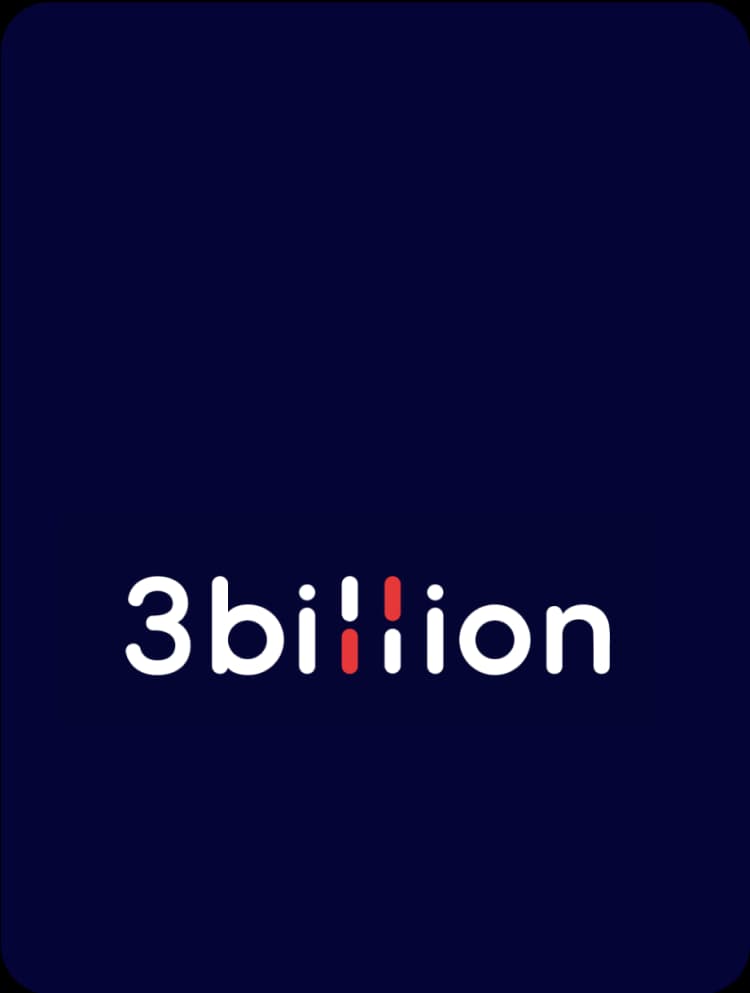GEBRA™: End-to-End Variant Interpretation Platform
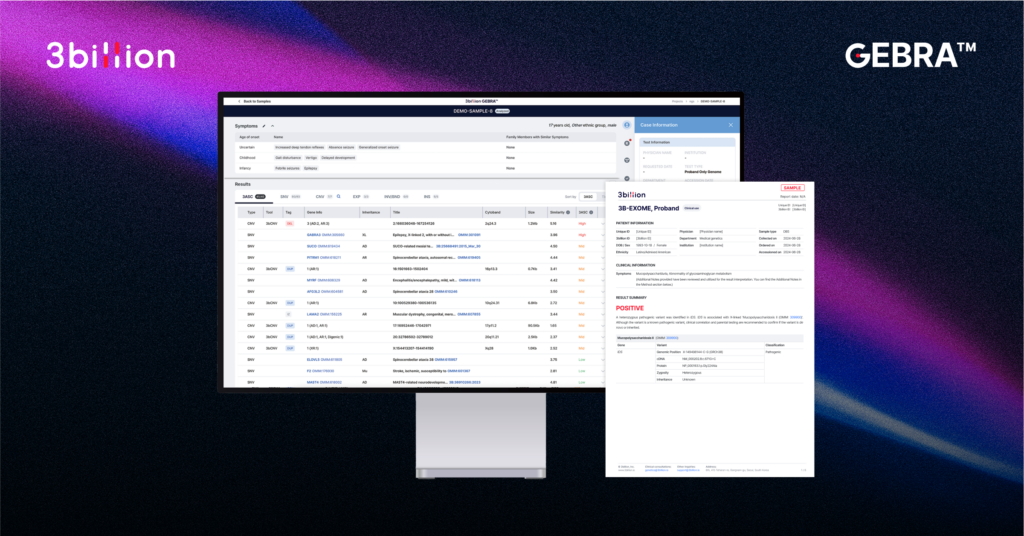
Variant interpretation isn’t new — but the way we approach it needs to be.
For years, we’ve watched clinicians, geneticists, and bioinformaticians piece together fragmented tools to reach diagnoses. Manually entering HPO terms. Jumping between annotation, classification, and reporting software. Wrestling with inconsistent pipelines and formats. All while trying to diagnose some of the world’s rarest diseases — often under intense clinical time pressure.
So at 3billion, we decided to build the tool we wished we had from the start.
Introducing GEBRA™
GEBRA™ (Genetic Evidence BRowsing and Analysis) is a cloud-based variant interpretation platform designed to turn raw sequencing data into clinical insights.
It’s the product of 7+ years of rare disease diagnostics at 3billion, trained on data from 75,000+ patients, and built with input from the very people who use it: clinical geneticists, bioinformaticians, and diagnostic labs across 70+ countries.
What Makes GEBRA™ Different?
1. End-to-End Analysis — Without the Noise
Upload a FASTQ or VCF. Get back automated variant calling, annotation, prioritization, and a customizable clinical report — all in a single streamlined workflow.
2. AI-Powered Prioritization
GEBRA™’s 3ASC model uses 41+ variant-level and phenotype features — including inheritance pattern, symptom similarity, and allele frequency — to successfully identify disease-causing variants within the top five candidates 97% of the time.
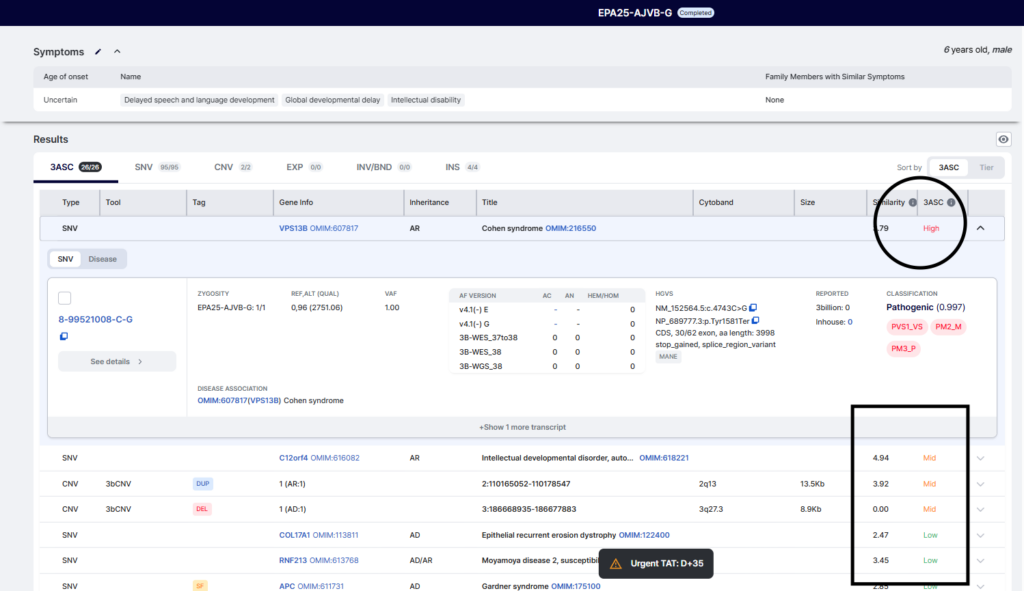
3. Structural Variant Support That Just Works
From CNVs to indels, inversions, translocations, and repeat expansions — GEBRA™ supports a full range of variant types, even in small sample sizes. No custom tuning or complex thresholds required.
4. Built-in Expert Knowledge
Every analysis taps into 3billion’s proprietary variant curation database, continuously updated from over 400 institutions’ real-world diagnostic experience. This means smarter filtering, fewer false leads, and less time wasted.
5. ACMG Classification, Done Right
GEBRA™’s EVIDENCE engine applies automated ACMG classification, surfacing rationale and references — but always keeps clinicians in control.
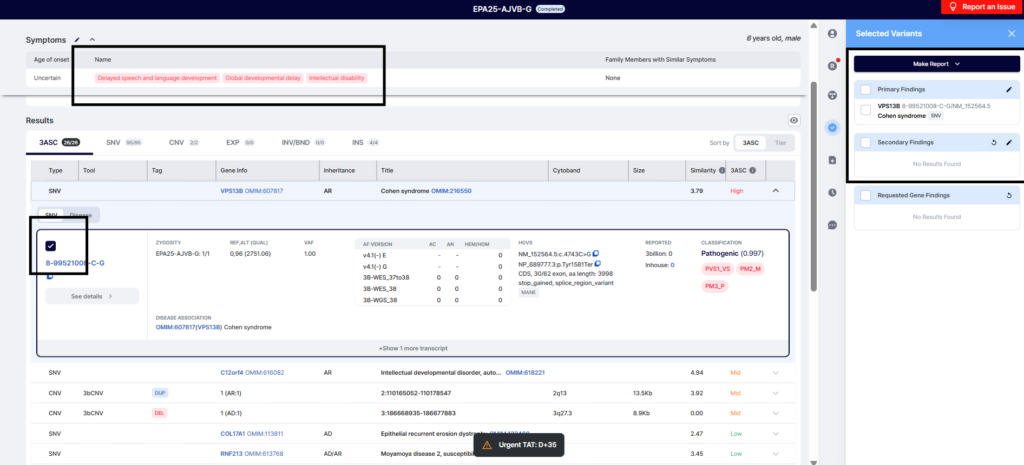
6. Built for Teams
With case sharing, version tracking, and full data ownership, GEBRA™ supports collaboration across clinical, lab, and research teams — whether you’re in the same room or across the globe.
Why GEBRA™ Had to Be Built?
We built GEBRA™ for the realities we see every day:
- Clinicians, who need tools that speak phenotype and don’t require scripting skills
- Bioinformaticians, who want transparency and control over filters, not a black box
- Lab directors, who need compliance, cost visibility, and trust
- Researchers, who want to explore tough cases — and eventually, publish them
We didn’t want another AI toy. We wanted a real-world platform that flexes to the needs of hospitals, labs, and research hubs around the world — from South Korea to Morocco, Greece to the Philippines.
Ready to Interpret Smarter?
We believe variant interpretation should be faster, clearer, and more collaborative — and that’s what we’ve built in GEBRA™.
Starting today, it’s available to teams worldwide.
Explore GEBRA™
Whether you’re handling 20 cases a month or 2,000, we’d love to show you how GEBRA™ can support your work — and your patients.
Let’s move variant interpretation forward.
Sign up for the demo by clicking the button below.
Get exclusive rare disease updates
from 3billion.

Sree Ramya Gunukula
Marketing Leader with experience in the pharma and healthcare sectors, specializing in digital health, genetic testing, and rare disease diagnostics.



